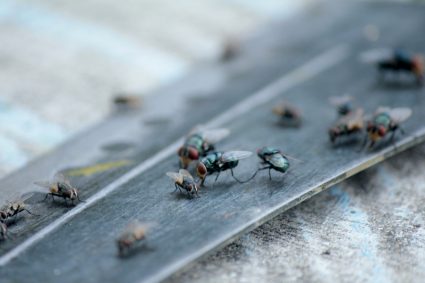
Possums, while often seen as cute and harmless, can become a nuisance when they invade your garden, damaging plants and uprooting your hard work. Don’t worry, though, as there are various ways to repel these critters without causing harm to them or upsetting the ecosystem balance. This comprehensive guide will provide you with several methods to deter possums from invading your garden.
To repel possums from your garden, use natural deterrents such as peppermint oil, spicy mix, and predator urine. Install motion-sensing devices and physical barriers like possum-proof fencing and tree trunk barriers. Pets can also act as deterrents. If possums are already in your garden, use rodent repellent sprays or live cage trapping for humane removal. Always ensure to take safety precautions and remove any attractants.
Understanding Possum Behavior
To effectively repel possums, it’s important to understand their behavior and habits. Possums are primarily nocturnal creatures, which means they are most active during the night. They are attracted to gardens with abundant food sources such as fruit trees, vegetables, and flowers. Understanding their habits can help you devise an effective plan to deter them from your garden.
Natural Deterrents
One of the best ways to prevent a possum invasion is by using natural deterrents. These deterrents are often based on scents that possums find unpleasant.
Peppermint Oil
Possums dislike the smell of peppermint. Mix a few drops of peppermint oil with water and spray it around the areas where possums are frequenting.
Spicy Mix
Possums are repelled by the smell and taste of cayenne pepper. You can also use other strong-smelling spices like garlic and onion to deter them.
Predator Urine
Using the urine of a possum’s main predator, such as a fox, can help scare them away. There are commercial products available on the market like Shake Away Fox Urine Granules.
Motion-sensing Devices
Installing motion-sensing floodlights or sprinkler systems can deter possums, as they are nocturnal and skittish creatures.
Physical Barriers
Physical barriers can be an effective way to keep possums out of your garden or specific areas within it.
Possum-proof Fencing
Construct a 2.5m-high wire fence topped with a length of floppy wire that makes it difficult for possums to climb into the property.
Tree Trunk Barriers
Place possum-proof clear plastic bands around tree trunks, making climbing more difficult without spoiling appearances.
Pets as Deterrents
Pets, particularly dogs and cats, can play a role in deterring possums from your property. Possums are naturally skittish creatures and tend to avoid potential predators like domesticated dogs and cats. However, ensure that you don’t leave pet food outside overnight, as it can attract possums.
Humane Removal of Possums
If possums have already established a presence in your garden, there are several humane ways to remove them.
Rodent Repellent Spray
Although possums are not rodents, rodent repellent sprays can be effective in deterring them.
Live Cage Trapping
Use live cage traps to capture possums and relocate them to a safe location at least 25 miles away from your home. However, be cautious and check local laws regarding possum relocation, as it may be subject to legal restrictions.
Safety Precautions
It’s essential to take safety precautions to ensure that both you and the possums remain unharmed. Always remove attractants, secure food and water sources, and keep compost bins closed. Also, use repellents and barriers in a way that does not cause harm to possums.
Remember, the goal is not to eliminate possums but to keep them at a safe distance from your garden. Possums play a vital role in the ecosystem by controlling pests like snails, slugs, and insects. By following the above methods, you can enjoy a possum-free garden without disrupting the natural balance.
Frequently Asked Questions
Can possums harm humans or pets?
Possums are generally non-aggressive and prefer to flee rather than fight. However, like any wild animal, they can become defensive if they feel threatened or cornered. They could bite or scratch in self-defense. It’s best to keep a safe distance and not attempt to handle them directly.
How can I tell if I have a possum problem in my garden?
Signs of possum activity in your garden can include damaged plants, uprooted flowers, and half-eaten fruits or vegetables. You might also find possum droppings or tracks around your garden. If you notice these signs, it’s likely you have possums frequenting your garden.
What should I do if the possums keep coming back even after using the deterrents mentioned?
If possums keep returning despite using deterrents, it’s possible they have established a nest nearby. You might want to consider hiring a professional wildlife removal service. They can locate and safely remove the possums without causing harm to them or disrupting the local ecosystem.
Are possums dangerous to my plants?
Yes, possums can be harmful to your plants. They are omnivores and eat a variety of foods, including fruits, vegetables, and flowers. They can cause significant damage to your garden by eating your plants and uprooting them while searching for food.
Can possums carry diseases?
Yes, possums can carry a variety of diseases, including leptospirosis, tuberculosis, relapsing fever, tularemia, spotted fever, toxoplasmosis, and coccidiosis. They can also carry fleas, ticks, mites, and lice. However, transmission of these diseases to humans or pets is relatively rare. As always, it’s best to avoid direct contact with possums.







